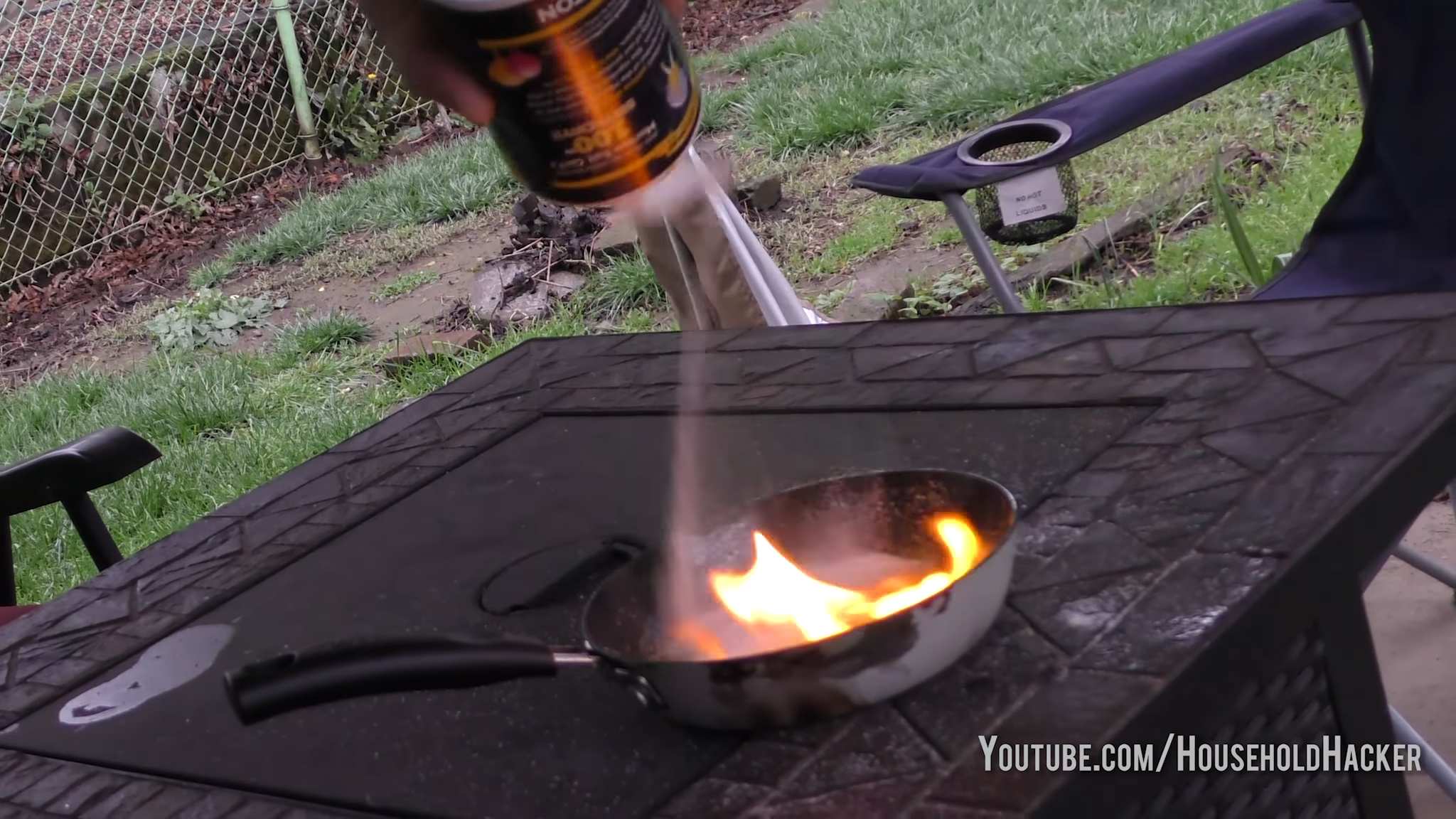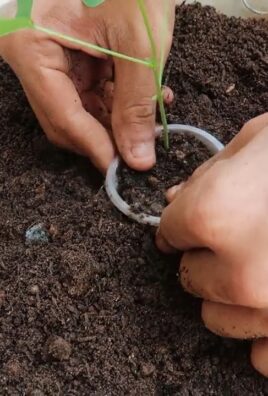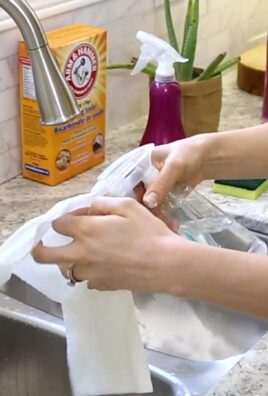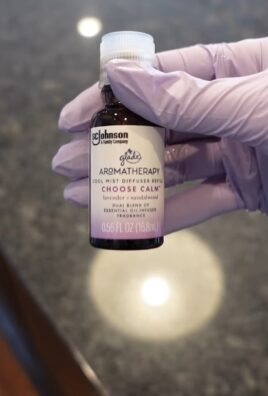Salt hacks for home gardening might sound a little crazy, right? I know, I know, you’re probably thinking, “Salt? In my garden? Are you trying to kill my plants?” But trust me, before you reach for the pitchfork, hear me out! For centuries, salt has been used in various cultures, not just for seasoning our food, but also for preserving it and even, surprisingly, for tending to the land. Think about ancient civilizations using salt to improve soil quality in specific ways – it’s a practice with deep roots!
Now, I’m not suggesting you dump a whole bag of table salt onto your precious petunias. That would definitely be a gardening disaster! But, when used strategically and in moderation, salt hacks for home gardening can actually be incredibly beneficial. We’re talking about simple, cost-effective solutions to common gardening problems like pesky weeds, unwanted pests, and even boosting the flavor of certain vegetables.
Let’s face it, gardening can be tough. We all want a thriving, beautiful garden, but sometimes it feels like we’re constantly battling against nature. That’s where these DIY salt tricks come in. They offer a natural and often cheaper alternative to harsh chemicals, helping you create a healthier and more sustainable garden. So, are you ready to unlock the surprising power of salt and transform your garden? Let’s dive in!

Unlocking the Magic of Salt: DIY Home Hacks You Need to Know
Hey there, fellow DIY enthusiasts! Get ready to be amazed because today, we’re diving deep into the wonderful world of salt and uncovering some seriously clever home hacks. Forget just seasoning your food; salt is a powerhouse of cleaning, deodorizing, and even beauty tricks. I’m so excited to share these with you, so let’s get started!
Cleaning Powerhouse: Salt’s Cleaning Abilities
Salt’s abrasive texture and chemical properties make it a fantastic natural cleaner. It’s gentle enough for many surfaces but strong enough to tackle tough stains and grime.
Cleaning a Scorched Pot or Pan
Ever accidentally burned something in your favorite pot? Don’t despair! Salt can help.
1. Pour a generous amount of salt into the scorched pot or pan. I usually use about half a cup, but adjust based on the size of the burned area.
2. Add just enough water to form a paste. You don’t want it too runny, just thick enough to coat the burnt bits.
3. Let it sit for a few hours, or even overnight for really stubborn burns. Patience is key here!
4. Scrub with a non-abrasive sponge or cloth. You’ll be surprised how easily the burnt food lifts away.
5. Rinse thoroughly with soap and water. Your pot should be looking much better!
Cleaning a Rusty Cast Iron Skillet
Cast iron is amazing, but rust can be a real pain. Salt to the rescue!
1. Pour a thick layer of coarse salt into the skillet. I prefer kosher salt for this, but any coarse salt will do.
2. Use a dry cloth or paper towel to scrub the salt into the rust. Apply some elbow grease! The salt acts as a gentle abrasive, removing the rust without damaging the seasoning.
3. Continue scrubbing until the rust is gone. You might need to add more salt as you go.
4. Rinse the skillet with hot water. Don’t use soap, as it can strip the seasoning.
5. Dry the skillet thoroughly with a clean cloth.
6. Season the skillet immediately. Heat it on the stovetop until it’s hot, then add a thin layer of oil and let it cool. This will help prevent future rust.
Cleaning a Stained Cutting Board
Cutting boards can get pretty gross, especially after chopping onions or garlic. Salt can help banish those lingering odors and stains.
1. Sprinkle a generous amount of salt over the cutting board.
2. Cut a lemon in half and use it to scrub the salt into the board. The lemon juice adds extra cleaning power and a fresh scent.
3. Let it sit for 5-10 minutes.
4. Rinse thoroughly with hot water and soap. Your cutting board will be clean and fresh!
Cleaning Grout
Grimey grout can make your whole bathroom look dirty. Here’s how to tackle it with salt:
1. Make a paste of salt and water (or vinegar for extra cleaning power). The paste should be thick enough to stick to the grout.
2. Apply the paste to the grout lines.
3. Let it sit for 10-15 minutes.
4. Scrub with an old toothbrush or grout brush.
5. Rinse thoroughly with water.
Deodorizing Wonders: Salt as a Natural Deodorizer
Salt isn’t just for cleaning; it’s also a fantastic natural deodorizer. It absorbs odors and helps freshen up your home.
Freshening Up Your Fridge
A smelly fridge is never fun. A simple bowl of salt can help absorb those unwanted odors.
1. Pour about a cup of salt into a small bowl.
2. Place the bowl in your fridge.
3. Replace the salt every few weeks, or sooner if it starts to smell.
Deodorizing Shoes
Stinky shoes? We’ve all been there. Salt can help!
1. Pour a generous amount of salt into each shoe.
2. Let it sit overnight.
3. Shake out the salt in the morning. Your shoes should smell much fresher.
Eliminating Sink Odors
If your sink is smelling a bit funky, try this simple trick:
1. Pour about half a cup of salt down the drain.
2. Follow with hot water. The salt will help break down any buildup and eliminate odors.
Beauty Boosts: Salt for Skin and Hair
Believe it or not, salt can also be used for some simple beauty treatments.
Salt Scrub for Exfoliation
A salt scrub is a great way to exfoliate your skin and leave it feeling soft and smooth.
1. Mix equal parts salt and oil (olive oil, coconut oil, or almond oil work well). I usually start with about a quarter cup of each.
2. Add a few drops of your favorite essential oil for fragrance (optional). Lavender or peppermint are great choices.
3. Gently massage the scrub onto your skin in a circular motion.
4. Rinse thoroughly with warm water.
5. Pat your skin dry and apply moisturizer.
Salt Water Rinse for Hair
A salt water rinse can add texture and volume to your hair.
1. Mix about a tablespoon of salt into a cup of warm water.
2. Pour the mixture over your hair after shampooing.
3. Massage it into your scalp.
4. Let it sit for a few minutes.
5. Rinse thoroughly with cool water.
Household Helpers: Other Clever Salt Hacks
Salt has even more tricks up its sleeve!
Keeping Ants Away
Ants hate salt! Sprinkle a line of salt across doorways or windowsills to deter them.
1. Identify where the ants are entering your home.
2. Sprinkle a thin line of salt along the entry point.
3. Reapply as needed, especially after rain.
Testing Egg Freshness
Wondering if your eggs are still good? Salt can help!
1. Fill a bowl with water.
2. Add about two tablespoons of salt.
3. Gently place the egg in the water.
4. If the egg sinks and lies flat, it’s fresh. If it stands on one end, it’s still okay but should be used soon. If it floats, it’s bad and should be discarded.
Preventing Fruit from Browning
Cut apples or avocados turning brown too quickly? Salt can help!
1. Mix a pinch of salt into a bowl of water.
2. Soak the cut fruit in the salt water for a few minutes.
3. Rinse the fruit with fresh water before eating.
Extinguishing Grease Fires (Small Ones!)
Important: Only use this method for small grease fires. For larger fires, call 911 immediately.
1. Carefully pour a generous amount of salt onto the flames. Salt smothers the fire by cutting off the oxygen supply.
2. Do not use water! Water will cause the grease to splatter and spread the fire.
Important Considerations
While salt is generally safe, there are a few things to keep in mind:
* Avoid using salt on delicate surfaces that could be scratched.
* Always test a small, inconspicuous area first before using salt on a larger surface.
* Be careful when using salt around plants, as it can dehydrate them.
* If you have sensitive skin, be cautious when using salt scrubs.
So there you have it – a whole bunch of amazing salt hacks to make your life easier and your home cleaner. I hope you enjoyed learning about these tips and tricks as much as I enjoyed sharing them with you. Now go forth and experiment with the magic of salt!

Conclusion
So, there you have it! These simple yet incredibly effective salt hacks for home are more than just clever tricks; they’re game-changers for your cleaning routine, your cooking, and even your self-care rituals. We’ve explored how this humble ingredient, readily available in almost every kitchen, can be transformed into a powerful tool for tackling everyday challenges. From banishing stubborn stains to enhancing the flavor of your favorite dishes, the versatility of salt is truly remarkable.
Why is this a must-try? Because these salt hacks are not only cost-effective and environmentally friendly, but they also deliver impressive results. Forget about harsh chemicals and expensive cleaning products – with a little salt, you can achieve a sparkling clean home and delicious meals without breaking the bank or harming the planet. Plus, the satisfaction of knowing you’re using a natural and safe alternative is an added bonus.
But the possibilities don’t stop here! Feel free to experiment with different types of salt to see what works best for you. Coarse sea salt can be particularly effective for scrubbing, while fine table salt is ideal for delicate tasks. You can also add essential oils to your salt scrubs for an extra boost of aromatherapy benefits. For example, lavender oil can promote relaxation, while peppermint oil can invigorate and energize.
Consider these variations to personalize your salt hacks:
* **Infused Salt:** Create your own flavored salts by combining salt with dried herbs, spices, or citrus zest. Rosemary salt is delicious on roasted vegetables, while lemon salt adds a bright and zesty flavor to seafood.
* **Salt Dough Ornaments:** Get creative and make salt dough ornaments for the holidays. This is a fun and easy activity for the whole family.
* **Salt Water Gargle Variations:** Add a pinch of baking soda to your salt water gargle for extra soothing relief from sore throats.
We’re confident that once you try these salt hacks, you’ll be amazed by their effectiveness and simplicity. They’re a testament to the power of natural ingredients and a reminder that sometimes, the best solutions are the ones that are right under our noses.
Now, it’s your turn! We encourage you to try these DIY salt hacks for home and discover the magic for yourself. Don’t be afraid to experiment and find new ways to incorporate salt into your daily routine. And most importantly, we want to hear about your experiences! Share your tips, tricks, and success stories in the comments below. Let’s create a community of salt enthusiasts and unlock the full potential of this amazing ingredient together. We are eager to learn from your experiences and build a comprehensive guide to all things salt!
Frequently Asked Questions (FAQs)
What kind of salt is best for these hacks?
The type of salt you use will depend on the specific hack. For cleaning purposes, coarse salt like sea salt or kosher salt is often preferred because its abrasive texture helps to scrub away dirt and grime. For cooking, table salt, sea salt, or kosher salt can be used, depending on your preference and the recipe. For bath soaks and scrubs, Epsom salt is a popular choice due to its magnesium content, which can help to relax muscles and soothe aches. However, regular sea salt or Himalayan pink salt can also be used for their mineral content.
Are these salt hacks safe for all surfaces?
While salt is generally safe for most surfaces, it’s always a good idea to test it in an inconspicuous area first, especially on delicate or easily damaged materials. Avoid using salt on polished surfaces like marble or granite, as it can scratch them. Also, be cautious when using salt on metal surfaces, as it can potentially cause corrosion over time. Always rinse thoroughly after using salt to prevent any residue buildup.
Can I use iodized salt for these hacks?
Yes, you can use iodized salt for most of these hacks. However, some people prefer to use non-iodized salt, especially for cooking, as they believe it has a purer flavor. The iodine in iodized salt can sometimes impart a slightly metallic taste, although this is usually not noticeable in most dishes. For cleaning purposes, the type of salt you use is less critical, so iodized salt is perfectly fine.
How often should I use these salt hacks?
The frequency with which you use these salt hacks will depend on your individual needs and preferences. For cleaning, you can use them as often as needed to maintain a clean and tidy home. For cooking, you can incorporate salt into your daily meals as desired. For bath soaks and scrubs, it’s generally recommended to use them once or twice a week to avoid over-exfoliating or drying out your skin.
Can salt really remove stains?
Yes, salt is a surprisingly effective stain remover, especially for certain types of stains. Its abrasive texture helps to lift stains from fabrics and surfaces, while its absorbent properties help to draw out moisture and odors. Salt is particularly effective for removing stains from red wine, coffee, tea, and grease. To use salt as a stain remover, simply apply it to the stain, let it sit for a while, and then scrub gently with a damp cloth or sponge.
Is salt safe for my pets?
While salt is generally safe for pets in small amounts, it’s important to be mindful of their intake. Excessive salt consumption can lead to dehydration, electrolyte imbalances, and even salt poisoning in pets. Avoid using salt-based cleaning solutions in areas where your pets have access, and make sure they always have access to fresh water. If you suspect your pet has ingested too much salt, contact your veterinarian immediately.
Can I use salt to unclog drains?
Yes, salt can be used to help unclog drains. Pouring a cup of salt down the drain followed by boiling water can help to dissolve grease and other buildup that may be causing the clog. For more stubborn clogs, you can combine salt with baking soda and vinegar for a more powerful cleaning action. However, it’s important to note that this method may not be effective for all types of clogs, and in some cases, you may need to resort to more traditional drain cleaning methods.
How long will these salt hacks last?
The shelf life of these salt hacks will depend on the specific recipe and how they are stored. In general, salt-based cleaning solutions and scrubs can be stored for several weeks or even months in an airtight container. However, it’s important to check for any signs of spoilage, such as discoloration or a foul odor, before using them. Flavored salts can also be stored for several months in an airtight container, but their flavor may diminish over time.
Are there any precautions I should take when using salt hacks?
While salt is generally safe to use, there are a few precautions you should take. Always wear gloves when using salt-based cleaning solutions to protect your skin from irritation. Avoid getting salt in your eyes, as it can cause stinging and discomfort. When using salt scrubs, be gentle and avoid over-exfoliating your skin. And as mentioned earlier, always test salt in an inconspicuous area before using it on delicate or easily damaged surfaces.
Where can I find more information about salt hacks?
You can find more information about salt hacks online through various websites, blogs, and social media platforms. You can also consult books and articles on natural cleaning, cooking, and self-care. Additionally, you can join online communities and forums dedicated to DIY projects and natural remedies to share your experiences and learn from others. Remember to always verify the information you find online with reliable sources before trying any new salt hacks.





Leave a Comment